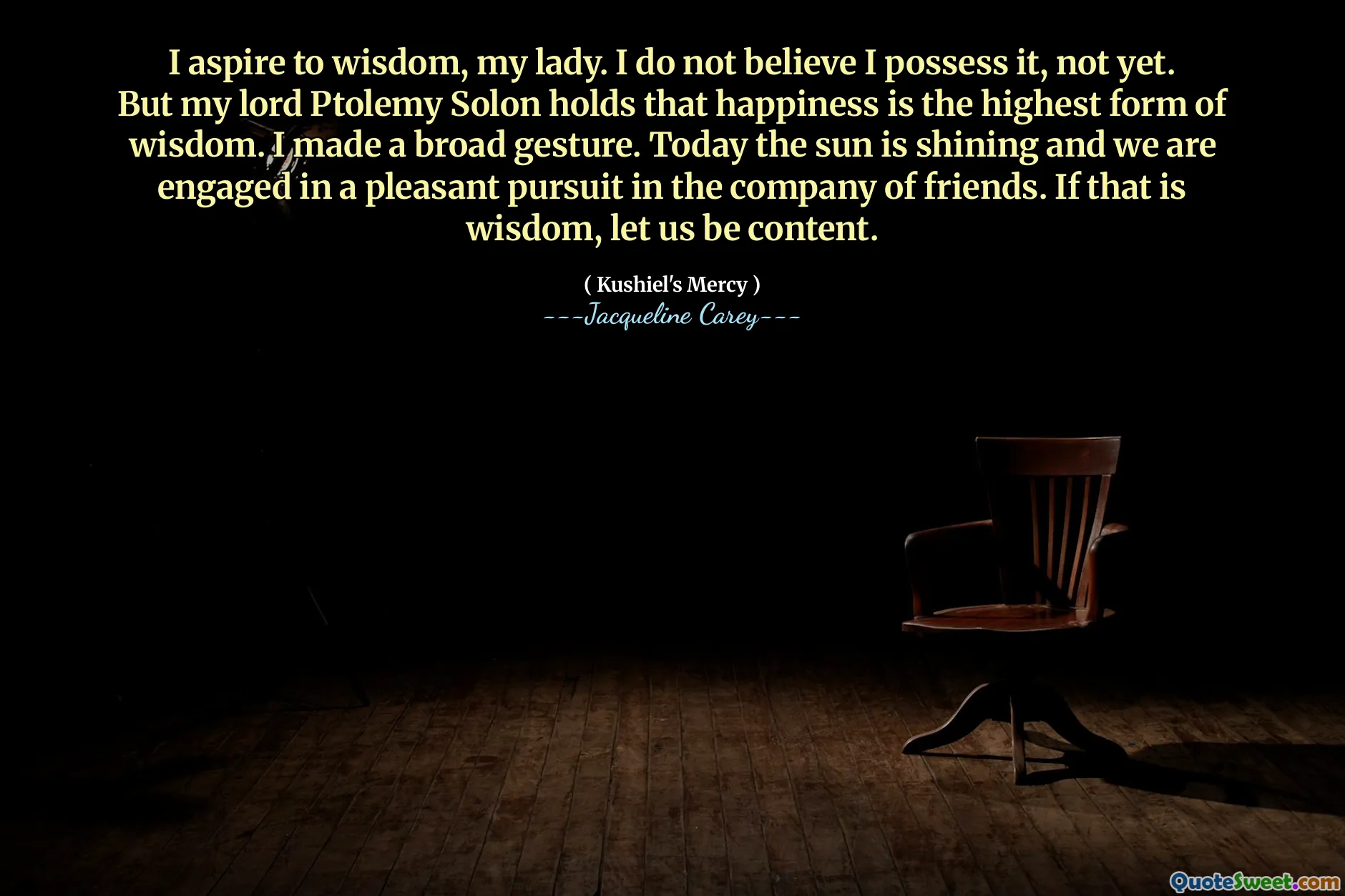
I aspire to wisdom, my lady. I do not believe I possess it, not yet. But my lord Ptolemy Solon holds that happiness is the highest form of wisdom. I made a broad gesture. Today the sun is shining and we are engaged in a pleasant pursuit in the company of friends. If that is wisdom, let us be content.
This quote epitomizes a profound reflection on the nature of wisdom and happiness. The speaker humbly acknowledges their own journey toward wisdom, recognizing that they have not yet attained it fully. This humility is important, as true wisdom often involves understanding one's own limitations and the continual process of learning. The mention of Lord Ptolemy Solon highlights a classical philosophical perspective: that happiness isn't merely a byproduct of wisdom but its highest form. This intertwining of happiness and wisdom questions the traditional beliefs that wisdom is primarily about knowledge or analytical insight.
What resonates deeply here is the embrace of the present moment — the acknowledgment that the sun shining and the joy of companionship in a pleasant activity can itself be a true form of wisdom. It encourages an appreciation of life's simple but profound experiences, underscoring that wisdom doesn't always reside in grand gestures or intellectual conquests but can be found in everyday contentment. This perspective holds a timeless value, reminding us to cherish happiness where it exists and recognize it as integral to living wisely.
By concluding with an acceptance of contentment, the speaker invites us to reconsider our own definitions of wisdom. It challenges the relentless pursuit of achievement and knowledge for its own sake and instead honors a balanced outlook where emotional fulfillment and joy play a central role. Ultimately, the quote suggests that wisdom is not purely cerebral but experiential and that genuine happiness reflects the culmination of true understanding.






